Vladimir Poutine has been in power since 2000, his current term ends in 2024. After the constitutional referendum in summer 2020, Parliament adopted a law in March allowing him to stand for two new consecutive presidential terms.
In Russia, the law provided for at most 2 consecutive terms before the signature promulgated last week. However, this restriction does not apply to presidents in force before the amendments to the constitution. Thanks to this law, Vladimir Putin could remain in power until 2036.
Previous mandates
In 2008, after 2 terms of office, Vladimir Poutine ceded his place as president to Dmitry Medvedev for one term. During these 4 years, he was Prime Minister. This former KGB (USSR intelligence service) officer began his political career as mayor of St Petersburg. He was then one of the closest advisers to President Boris Yeltsin, then the head of his government in 1999. In May 2000, he was elected president in the first round. He then embarked on a policy of reforms to restore the economy of the country which had lost influence in the world. Reelected in 2004, he could not run for a third time in 2008. Challenged during the 2011 legislative elections, he stood for re-election in 2012 and won in the first round.
The last 2 terms
In 2012, he became president again for an extended term of 4 to 6 years, according to the amendment adopted in 2008. During this period, he became involved internationally. He sends soldiers to Syria to support Bashar-al-Assad’s forces in the civil war. In addition, following a contested referendum, he reunites the Crimean peninsula within the framework of the Donbass war.
The second term begins in 2018 with a victory in the first round. In 2020, the referendum allows the adoption of the constitutional reform allowing him to run for 2 additional consecutive terms. If he wins the election, he will remain in power until 2036.
The voted constitutional revision of 2020 introduces conservative principles into the Constitution: faith in God, marriage reserved for heterosexuals, patriotic education, as well as lifetime immunity guaranteed to Russian presidents.
Conflicts
The Chechen Wars (1994-1996 and 1999-2009)
Several conflicts took place during the various terms of Vladimir Putin among which we find the wars of Chechnya.
The first Chechen war between the Armed Forces of the Russian Federation and the separatists of Chechnya (North Caucasus) took place from 1994 to 1996. It ended in failure and the withdrawal of Russian troops.
The Second Chechen War began in September 1999 with the Chechen terrorist attacks in Kavkaz. Several hundred victims were deplored in Moscow and other Russian cities. Russian opinion was hostile to the first Chechen war, it demanded new military operations to put an end to the Chechen separatists. On October 1, the « anti-terrorist operation » (2nd Chechen War) begins, to restore federal constitutional order.
An electoral attempt tries to keep Chechnya in the Federation. The capital, Grozny, fell to Russia in 2000, but major clashes took place until 2009, when the second war ended. After 10 years of fighting and a weakened Chechen rebellion, the Russian authorities have decided to end the status of « anti-terrorist operation zone » for Chechnya. Between 100,000 and 300,000 civilians fell.
Since 2007, Ramzan Kadyrov has ruled the country. Vladimir Putin himself had placed this man inseparable from the Russian regime.
The Donbass War (2014- ….)
It starts in 2014 in eastern Ukraine. At that time, Crimea and Sebastopol (Ukrainian territories since 1954) secede and join the Russian Federation following the 2014 referendum (not recognized by the majority of the international community). The secessionist territories proclaim themselves the Donetsk People’s Republic (DNR) and the Lugansk People’s Republic (LNR).
On June 6, 2014, the first « Normandy Format » was held during the celebration of the Normandy Landings in Ouistreham. This semi-official quadripartite meeting brought together France, Germany, Russia and Ukraine during the Donbass War. It was the starting point for diplomatic negotiations to find a peaceful solution to the conflict in Ukraine.
Representatives of Ukraine, Russia, Donetsk People’s Republic (DNR) and Lugansk People’s Republic (LNR) sign the Minsk Protocol on September 5, 2014 to end the war in eastern Ukraine. Neither this agreement nor the ceasefire signed in February 2015 is being applied. The Ukrainian crisis remains at an impasse and a new Format Normandie meeting will be held in October 2015 in Paris. It is always a question of the Donbass crisis but also that in Syria. Finding a solution is still the main topic of the « Normandy Format of October 2016 in Berlin.
On June 11, 2018, a new ministerial meeting in Normandy format took place in Berlin to condition the sanctions against Russia. France and Germany have called for progress on the security, political, humanitarian and economic levels. It was necessary to stop the hundreds of ceasefire violations every day, dozens of deaths every month, the use of heavy weapons and a degraded humanitarian situation for the populations living in the conflict zone.
Progress retained
Progress has been observed in recent months, including the withdrawal of troops in 3 sectors. Russia has returned to Ukraine 3 military ships seized a year earlier off the coast of Crimea. In early September 2019, the two countries carried out a major exchange of prisoners, including the very symbolic figure of Ukrainian filmmaker Oleg Sentsov.
A year after the Paris summit, the agreements have only been partially respected. The preservation of the ceasefire in force since July 2020 is preserved.
The latest twists
In February 2021, it is the first time since the beginning of the year that two soldiers from Kiev have been killed on the same day. Kiev accuses the separatists and Russia (considered their political and military godfather) of undermining the truce that entered into force in July 2020. During a video conference, the UN security council calls on Russia to withdraw its forces from Ukraine and stop supporting the separatists. Since the beginning of the month, 5 Ukrainian soldiers killed.
The President of the European Council Charles Michel was for the first time in Donbass, on the front line on March 1. The European Union called on all parties to « step up their efforts to defuse the situation and come together to find common ground ».
On March 18, G7 foreign ministers and the High Representative of the European Union unanimously condemned Russia’s continued actions aimed at undermining the sovereignty, territorial integrity and independence of Ukraine. They reaffirmed their support and commitment to the independence, sovereignty and territorial integrity of Ukraine within its internationally recognized borders. « Russia is a party to the conflict in eastern Ukraine, and not a mediator in this conflict. It is important to respect the ceasefire, a fundamental factor in any progress towards a peaceful settlement of the conflict, » said they stated.
Ukrainian president’s exchanges
Since the beginning of April, there has been a resurgence of tension between Ukraine and Russia. The two parties are responsible for the threat. Russia’s military preparations could turn into an offensive in the Donbass. To block Moscow, Zelensky would like to bring Ukraine into NATO, a life insurance against Russia. Ukrainian President talks with NATO Secretary of State, President Joe Biden and Boris Johnson. He also met Emmanuel Macron on April 16 in Paris, without concrete results. A videoconference with Angela Merkel followed. The tripartite meeting proposed the withdrawal of Russian troops to the Ukrainian border.
Military support for the Syrian regime (2015- still to date)
Russia’s military intervention in Syria took place during the Syrian civil war and saw the deployment from September 30, 2015 of Russian army forces in support of the Syrian army. Anti-regime, pro-democracy protests in the context of the Arab Spring started the Syrian civil war. Today, the regime with the support of Russia and Iran has taken over much of the territory. In the east of the country, there are still American and Russian forces, and also militias to carry out operations against the Islamist group. Turkey is the other country involved, at odds with Russia, it could oppose it in Libya, Syria and even in the Caucasus.
Support in the second Nagorno-Karakagh conflict (September-November 2020)
The Nagorno-Karabakh war pitted Armenia against Azerbaijan. The Soviets attached this mostly Armenian enclave to Azerbaijan in 1921. A first conflict began in 1988 with regular clashes between Armenians and Azeris. In 1991, Nagorno-Karabakh declared its independence (a state not recognized by the international community). A first ceasefire was signed in 1994.
Operation « Steel Fist » or « Second Nagorno-Karabakh War » begins in September 2020 after regular tensions between Nagorno-Karabakh (Artsakh) and Azerbaijan. Armenia supports Artsakh and Turkey supports Azerbaijian. A ceasefire and a resumption of negotiations came 13 days later following Russian mediation. A week later, the Minsk group, created in 1992 by the Organization for Security and Cooperation in Europe, unsuccessfully proposed a second ceasefire. It will be the same for the humanitarian proposal of the United States, at the end of October.
On November 9, 2020, after the capture of Shusha by the Azerbaijani, Armenia signed an agreement to end hostilities under the aegis of Russia. This agreement also provides for the deployment of Russian peace forces in the region for 5 renewable years and the creation of a Russian-Turkish observation center in order to monitor the ceasefire.
The opposition
Alexeï Navlany is one of the main opponents of the Kremlin. He was a member of the Russian Opposition Coordination Council. Leader of the Russia of the Future Party, he was also the founder of the Anti-Corruption Foundation (FBK). Sworn enemy of Vladimir Putin, this former lawyer has known arrests, imprisonments, intimidation, legal attacks for defamation … According to his entourage, he was poisoned in August 2020 in Siberia. He was first hospitalized in Omsk. The international community intervenes and a German NGO requests his transfer to Germany. Arrived on site in a coma, the thesis of poisoning is confirmed.
Once healed, Putin assures him that he will be able to return to Russia free, but he is arrested as soon as he arrives. In prison, he called the referendum « a huge lie ». The NGO Golos denounced an unprecedented attack on the sovereignty of the Russian people. He calls on the Russians to take to the streets, 2000 people are arrested.
At the end of March, the opponent declared a hunger strike to demand law enforcement. He wants a doctor to come see him. To date, Alexeï Navalny is « in serious danger » and must be evacuated abroad, according to UN experts. Thousands of demonstrators marched Wednesday evening 21 in Moscow and St. Petersburg. They supported the opponent despite a large police force.
Share this content:


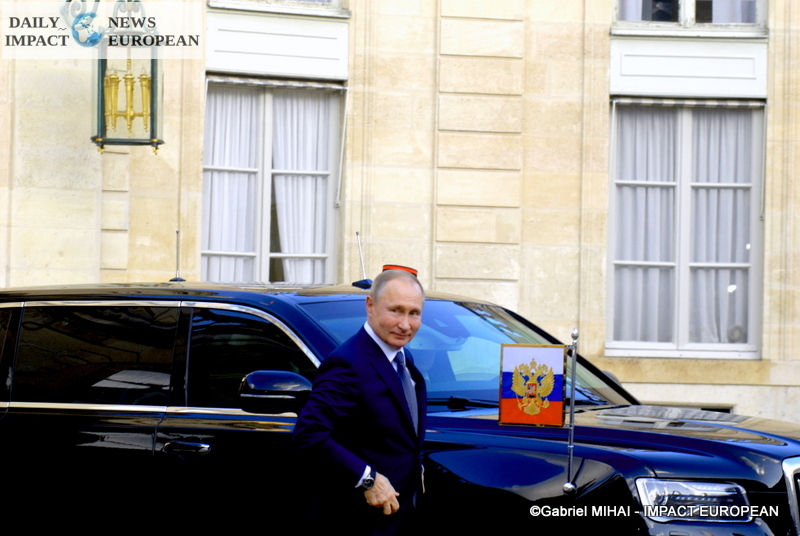
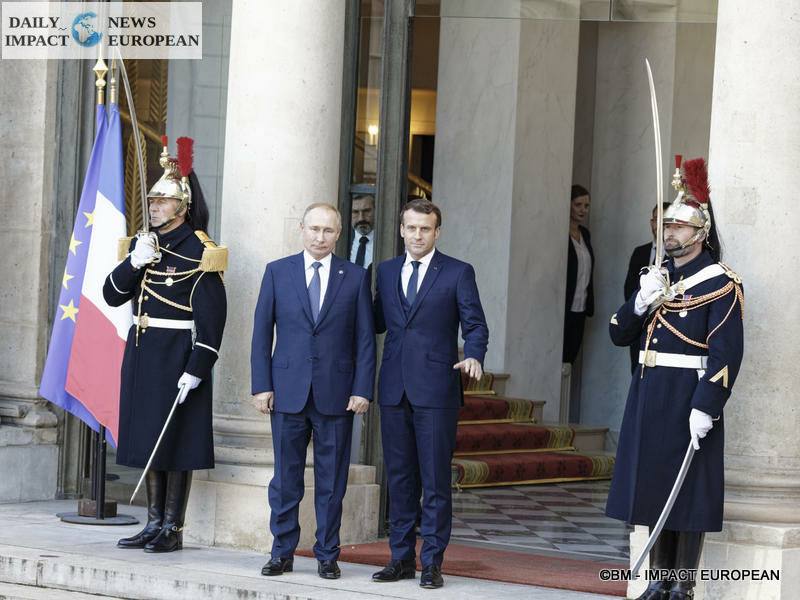
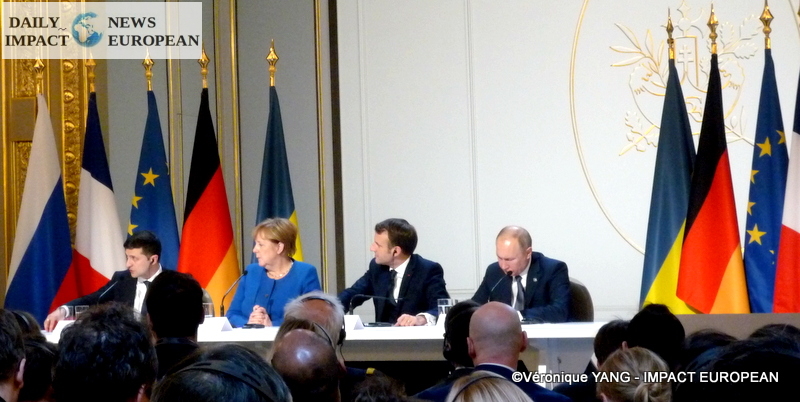
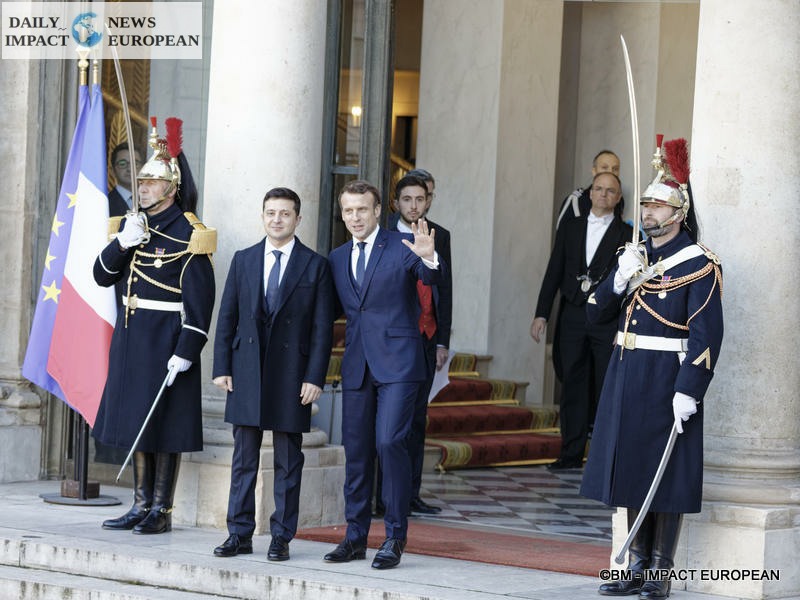
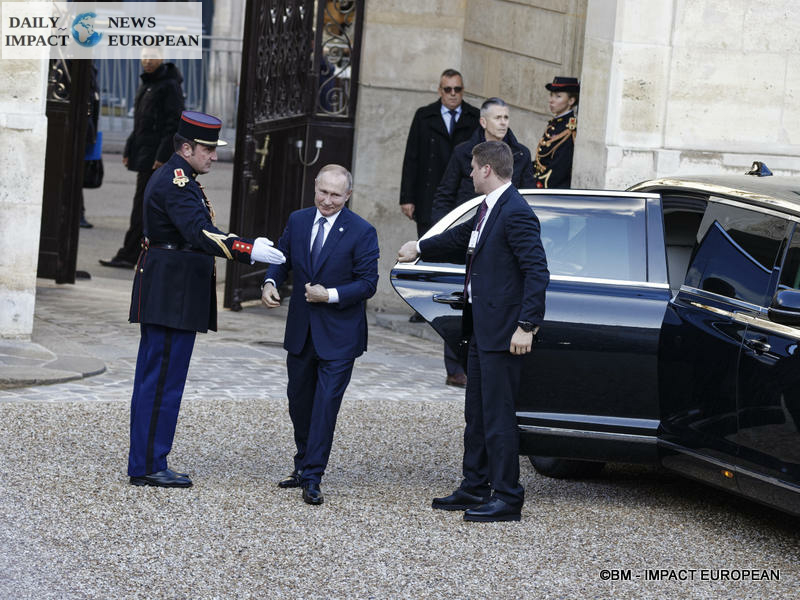
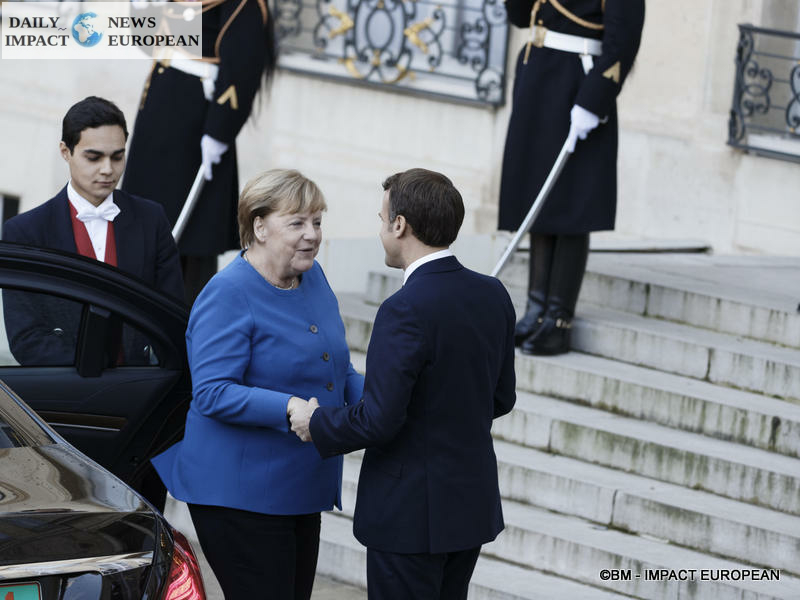


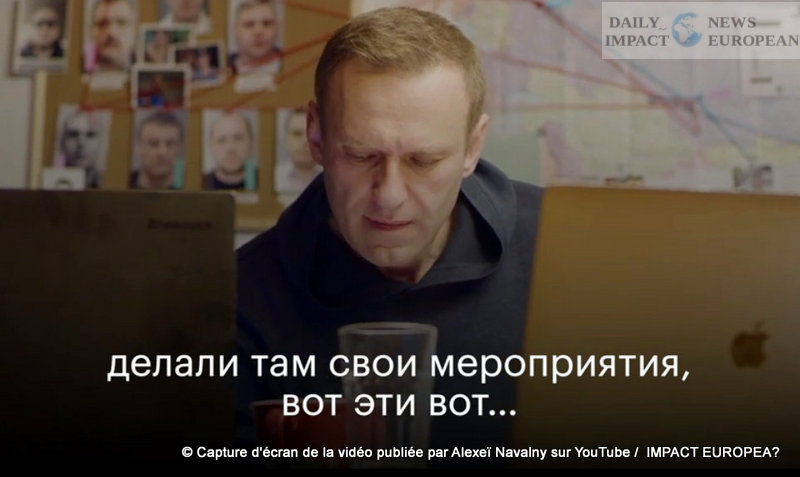


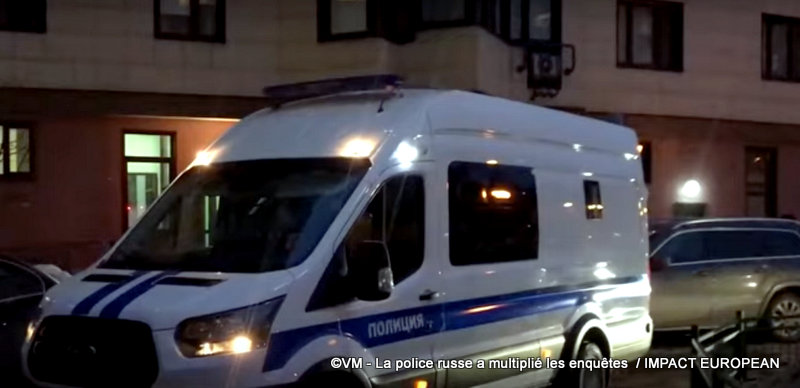
Plus d'histoires
Soleil d’Enfance Gala 2025: A Night of Solidarity Supporting Children with Disabilities
The Zelensky Couple’s European Tour for Peace
YouCare Exhibition: When Art and Celebrities Unite to Save Animals